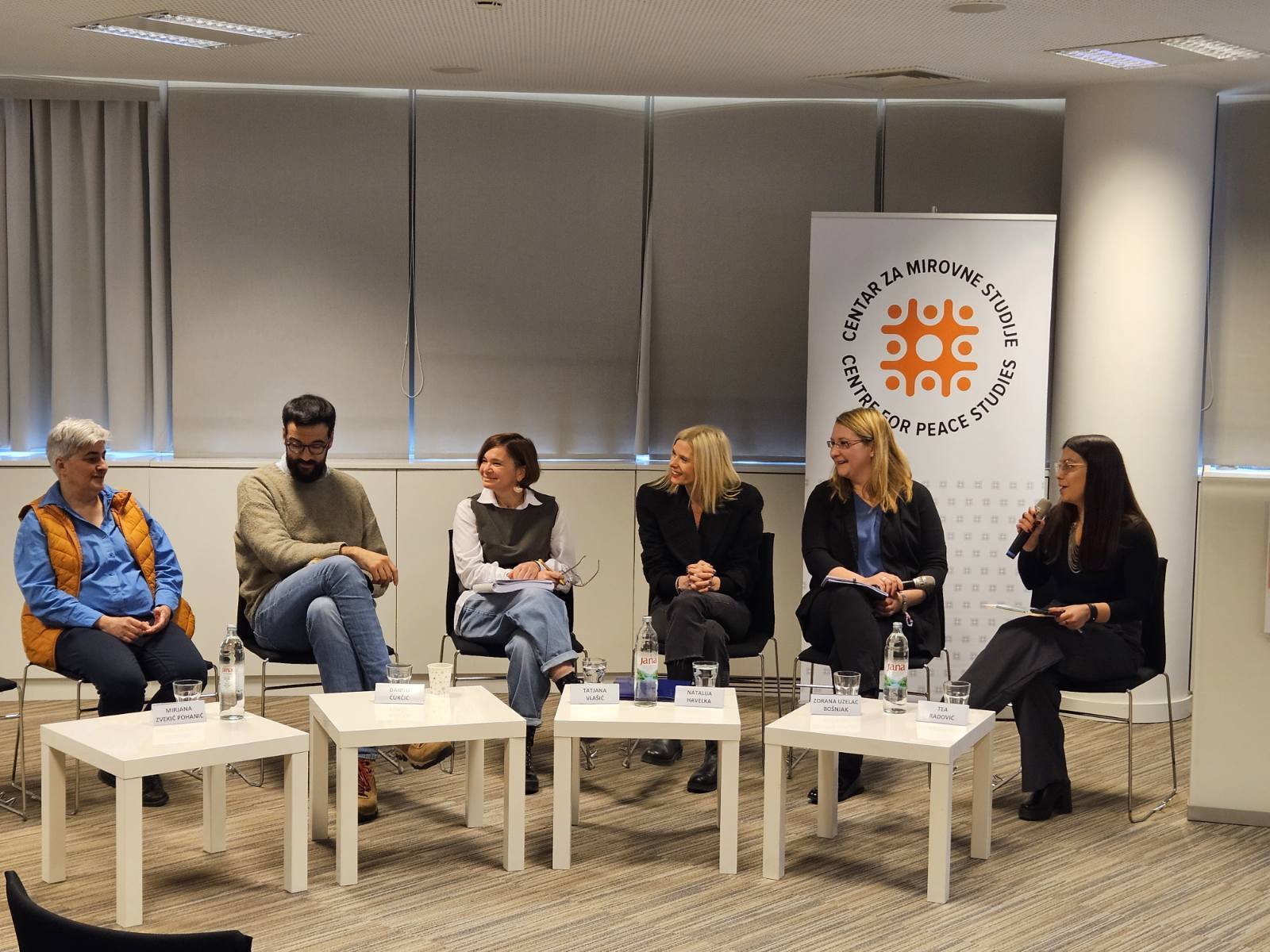Published 06.02.2025. | Tena Mur

We oppose unpaid and forced labor - this is the message from the conference "Punishment of Poverty: Forced Labor of Social Assistance Beneficiaries" organized by the Center for Peace Studies and the Centre for Peace, Nonviolence and Human Rights Osijek.
Namely, the state forces the beneficiaries of social assistance, i.e. the guaranteed minimum benefit, to work for free without basic labor rights, if they do not want to be deprived of social assistance. A guaranteed minimum benefit of €160 for single people is the last safety net for people who do not have the means to meet the basic needs of life, nor can they somehow provide them. Namely, the law has prescribed the possibility for years, and the new Social Welfare Act, which came into force at the beginning of 2023, introduced an obligation for cities and municipalities to implement this "measure" that forces people in deep poverty to do jobs that others do not want to do for free, otherwise this misery of social assistance is abolished for them.
Deputy Ombudswoman Tatjana Vlašić points out that their institution receives numerous complaints about violations of rights related to this measure and that they are also asking for the repeal of the measure due to harmfulness. "For years, we have seen that at-risk-of-poverty rates are rising, the number of beneficiaries of the guaranteed minimum benefit is falling, and few are being included in the labor market, which means that people are dropping out for administrative reasons," Vlašić notes.
This practice violates a number of human rights, such as the right to free choice of work, the prohibition of forced labor, the right to equality before the law, the right to social security, care and insurance, and also calls into question whether the Republic of Croatia can be considered a welfare state as defined by the Constitution. In addition, this measure is insufficiently regulated, so it is implemented differently in different cities and municipalities, leading to additional legal uncertainty and potential discrimination.
"As many as 307 beneficiaries of the minimum guaranteed allowance in the last two years have contacted us asking for legal aid for violations of their rights," said Natalija Havelka from the Center for Peace, Nonviolence and Human Rights - Osijek. The most common inquiries from users were related to the exercise of workers' rights. It was not clear why they were not paid extra for this work and why they were not paid employment benefits, e.g. the cost of coming to work. There were also inquiries related to occupational safety.
Even those who are supposed to implement it are not satisfied with such a measure, because although they are social workers, who are expected to empower users, they have to implement and implement the measure. "This must change", said Zorana Uzelac Bošnjak from the City Office for Social Protection, Health, Veterans and Persons with Disabilities of the City of Zagreb, which is obliged by the Law to implement the measure, and added: "An individual approach to each beneficiary, inclusion in the labor market, but also a change in citizens' attitudes towards people who use social assistance and the poor in general are crucial, who are extremely stigmatized."
Social worker Mirjana Zvekić Pohanić pointed out that it is important for people who receive social assistance to be seen as people with specific life situations, and this is achieved through social mentoring, unlike work for the common good, which is a bureaucratized measure.
At the end of 2023, the Center for Peace Studies and the Centre for Peace, Nonviolence and Human Rights - Osijek asked the Constitutional Court to overturn this measure because it is unconstitutional, and the decision is still pending.
In addition to Croatia, Romania, Bulgaria and Slovakia are implementing a similar measure in the European Union. Such a measure was also implemented by Serbia, but it was abolished after the Constitutional Court's verdict, but the story of unpaid work keeps returning to the public space. "We need an in-depth systemic discussion about the fact that we need the social protection system, given that it is now seen as a cost," explained Danilo Ćurčić from the A11 Initiative, which has been fighting for the abolition of this measure in Serbia for many years.
At the conference, it was pointed out that working with working-age beneficiaries of social assistance should aim to include these people in the labor market, in order to lift them out of poverty through their work, which this policy certainly does not contribute to. On the contrary, it pushes people even further into poverty and social exclusion.
"After analyzing the measure, we suggest that the Government finally introduce a planned measure of social mentoring that would really help people instead of punishing them," said Tea Radović from the Center for Peace Studies. However, the Ministry of Labor, Pension System, Family and Social Policy has not yet responded to the proposals sent to them, and they have not responded to the invitation to the conference.
Therefore, the associations call for the amendments to the Social Welfare Act, which are currently in public consultation, to abolish this multiply harmful provision, and to provide individual support, better psychosocial services and social mentoring for inclusion in society and the labor market to working-age social assistance beneficiaries.